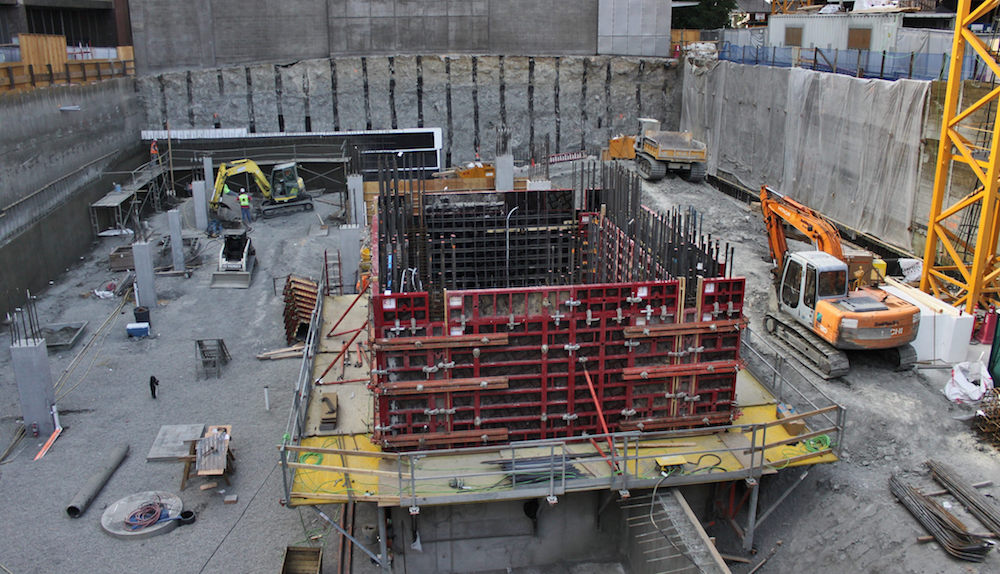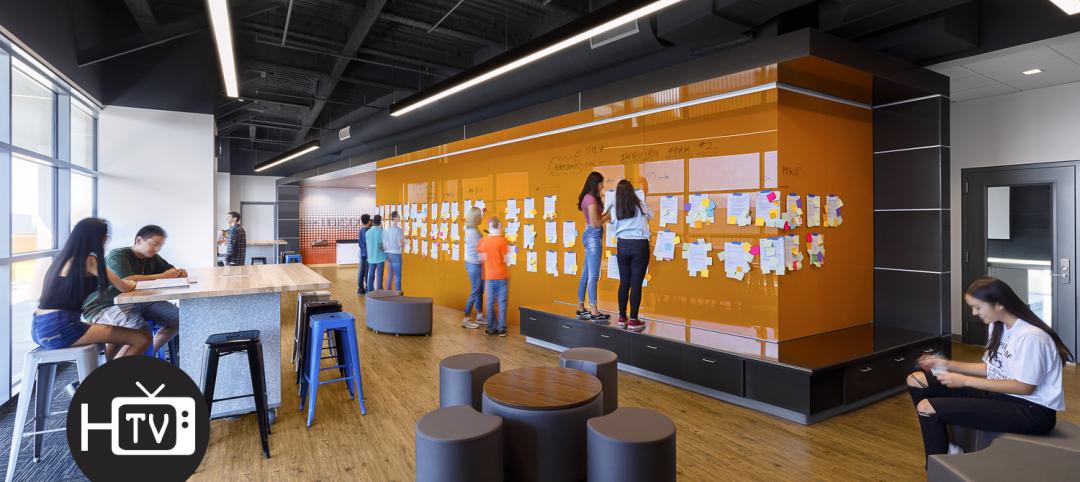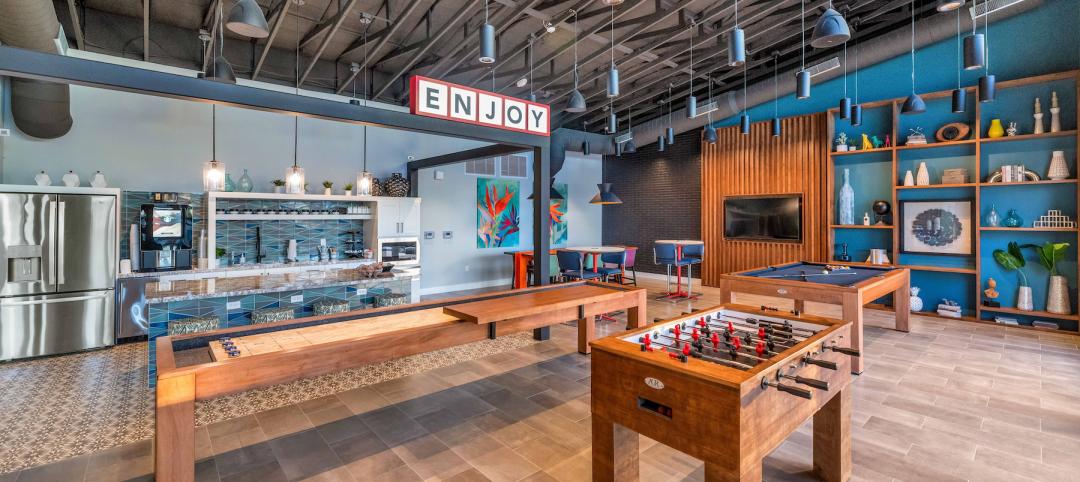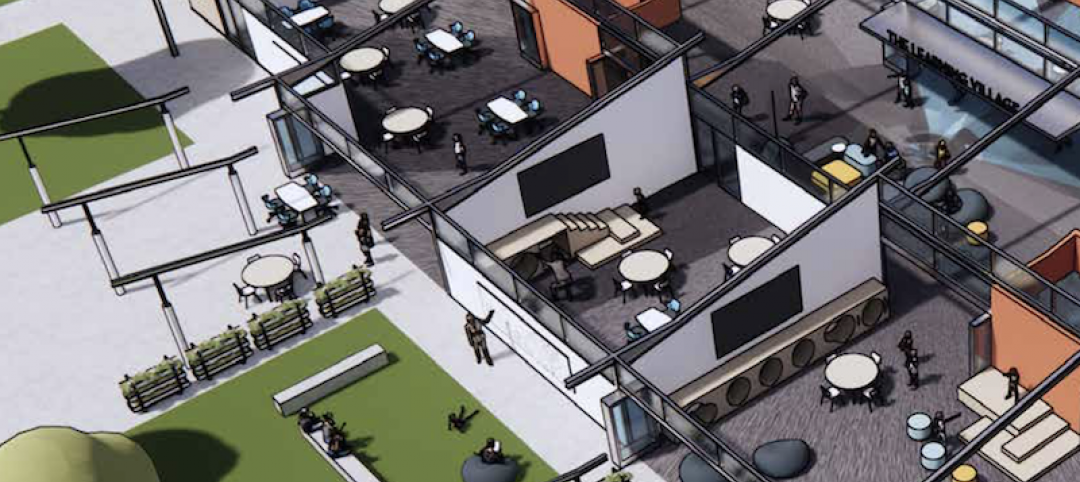A bruising presidential election and a tightening labor market are prompting reservations about future spending for nonresidential building, even as the construction industry’s performance has staved off most gloom-and-doom scenarios.
Total spending for nonresidential building was up nearly 11%, to $103.3 billion, in the first quarter. The Census Bureau estimated that the value of nonresidential building put in place rose 3.1% in April compared to April 2015, to an annualized $461.8 billion, spurred by robust building of hotels, offices, and entertainment/amusement centers.
TOP CONTRACTOR GIANTS
2015 GC Revenue ($)
1. Turner Construction Co. $10,566,643,175
2. Whiting-Turner Contracting Co. $5,530,003,229
3. Fluor Corp. $5,048,920,000
4. Skanska USA $4,887,571,264
5. Gilbane Building Co. $4,406,057,000
6. PCL Construction Enterprises $4,344,294,460
7. Balfour Beatty US $3,955,770,283
8. Structure Tone $3,865,600,000
9. AECOM $3,772,057,000
10. DPR Construction $3,085,975,000
TOP CM/PM GIANTS
2015 CM/PM Revenue ($)
1. Hill International $503,000,000
2. Jacobs $460,670,000
3. JLL $328,233,760
4. Hunter Roberts Construction Group $259,724,915
5. AECOM $256,933,000
6. Burns & McDonnell $255,390,861
7. WSP | Parsons Brinckerhoff $173,063,000
8. Turner Construction Co. $161,788,824
9. Sachse Construction $109,836,555
10. Cumming $96,538,000
CONSTRUCTION GIANTS SPONSORED BY:
“The construction sector is likely to be the economic tailwind” in the U.S., predicts Kermit Baker, PhD, Chief Economist with the American Institute of Architects.
Baker and chief economists Ken Simonson of the Associated General Contractors of America and Alex Carrick of CMD Construction Data expect nonresidential construction spending to increase 9–10% this year and 4–8% in 2017. More than one-third of AGC’s membership expects there will be more work to bid on this year than last year, particularly in the retail, warehouse, lodging, and office sectors.
The trio of economists raised a number of red flags about factors that could slow construction spending. “Market fundamentals remain positive, but are fading in most sectors,” said Baker.
Carrick and Simonson are less sanguine about spending for education-related projects, mainly because growth figures for 4- to 17-year-olds and 18- to 26-year-olds are either flat lining or receding.
Simonson noted that recent legislation passed by Congress extends tax credits and allows for more federal dollars to flow into construction. But the federal government is reducing its overall physical footprint, so it’s more likely to renovate existing buildings than build new.
Multifamily housing, which has been one of the construction industry’s high-powered turbines—it’s up 30% since 2009, according to Baker—is expected to taper off to a still-strong but normalized range of 410,000–440,000 units per year.
Simonson also pointed out that the U.S. population has been growing at less than 1% annually, and that several states have lost population. Immigration, which has pushed population growth over the past few decades, has lost traction. The factors could lead to less mobility and less demand for new construction.
HELLO!!! ARE THERE ANY CARPENTERS OUT THERE?
Another area of concern for contractors is finding the skilled labor they need to complete projects they bid for.
The country’s unemployment rate stood at 4.7% in May, and was down in 269 of 387 metros, according to Bureau of Labor Statistics estimates. Carrick noted that the labor participation rate (the labor force as a percentage of the working-age population) fell to 62.5% in Q1/2016, from 67% in 2001.
Citing a recent survey of 1,300 AGC-member companies, Simonson said that 79% are having difficulty finding hourly craft professionals, and 73% struggle to hire carpenters. More than half (56%) said they have raised their base pay for hourly workers; 29% provide incentives and bonuses.
None of the economists anticipates a recession rearing its head any time soon. “I think there’s too much negative talk about the economy,” said Carrick. What does worry him are the sluggish energy sector and economic slowdowns outside the U.S., specifically China.
As for the presidential race, AGC’s Simonson lamented that it might not make much difference who wins. “I expect continued gridlock,” he says. “Uncertainty will cause companies to hold back on major investments.”
More on the 2016 Construction Giants: BD+C's John Caulfield examines how Turner uses to design-build, P3, Lean practices, and engineering services.
RETURN TO THE GIANTS 300 LANDING PAGE
Related Stories
K-12 Schools | Jul 9, 2021
LPA Architects' STEM high school post-occupancy evaluation
LPA Architects conducted a post-occupancy evaluation, or POE, of the eSTEM Academy, a new high school specializing in health/medical and design/engineering Career Technical Education, in Eastvale, Calif. The POE helped LPA, the Riverside County Office of Education, and the Corona-Norco Unified School District gain a better understanding of which design innovations—such as movable walls, flex furniture, collaborative spaces, indoor-outdoor activity areas, and a student union—enhanced the education program, and how well students and teachers used these innovations.
Market Data | Jul 8, 2021
Encouraging construction cost trends are emerging
In its latest quarterly report, Rider Levett Bucknall states that contractors’ most critical choice will be selecting which building sectors to target.
Multifamily Housing | Jul 7, 2021
Make sure to get your multifamily amenities mix right
One of the hardest decisions multifamily developers and their design teams have to make is what mix of amenities they’re going to put into each project. A lot of squiggly factors go into that decision: the type of community, the geographic market, local recreation preferences, climate/weather conditions, physical parameters, and of course the budget. The permutations are mind-boggling.
Industrial Facilities | Jul 2, 2021
A new approach to cold storage buildings
Cameron Trefry and Kate Lyle of Ware Malcomb talk about their firm's cold storage building prototype that is serving a market that is rapidly expanding across the supply chain.
Contractors | Jul 1, 2021
Nonres construction spending down again in May
And the industry is still beset with labor and materials issues that could impede future growth
Multifamily Housing | Jun 30, 2021
A post-pandemic ‘new normal’ for apartment buildings
Grimm + Parker’s vision foresees buildings with rentable offices and refrigerated package storage.
Resiliency | Jun 24, 2021
Oceanographer John Englander talks resiliency and buildings [new on HorizonTV]
New on HorizonTV, oceanographer John Englander discusses his latest book, which warns that, regardless of resilience efforts, sea levels will rise by meters in the coming decades. Adaptation, he says, is the key to future building design and construction.
Multifamily Housing | Jun 23, 2021
COVID-19’s impact on multifamily amenities
Multifamily project teams had to scramble to accommodate the overwhelming demand for work-from-home spaces for adults and study spaces for children.
Contractors | Jun 22, 2021
McCarthy Building Companies taps the military for potential new hires
The contractor can now recruit through the Army’s Youth Success program
K-12 Schools | Jun 20, 2021
Los Angeles County issues design guidelines for extending PreK-12 learning to the outdoors
The report covers everything from funding and site prep recommendations to whether large rocks can be used as seating.










![Oceanographer John Englander talks resiliency and buildings [new on HorizonTV] Oceanographer John Englander talks resiliency and buildings [new on HorizonTV]](/sites/default/files/styles/list_big/public/Oceanographer%20John%20Englander%20Talks%20Resiliency%20and%20Buildings%20YT%20new_0.jpg?itok=enJ1TWJ8)







